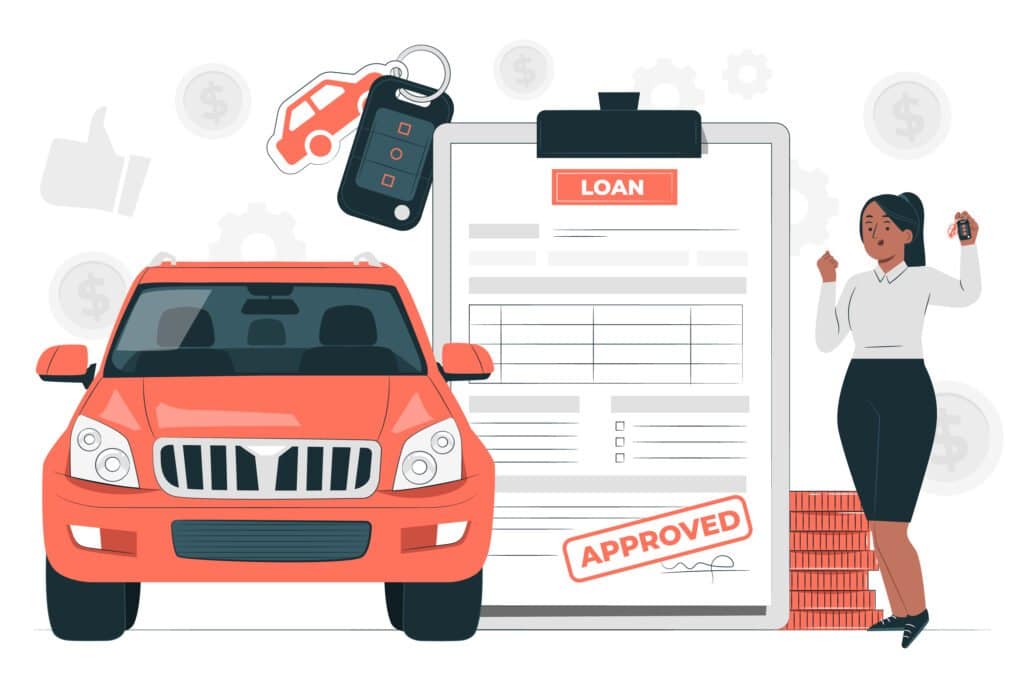Pros and Cons of Financing a Car: Is It the Right Choice for You?
When purchasing a vehicle, deciding how to pay for it is one of the biggest decisions buyers face. Should you finance your car through a loan or pay upfront with cash? Each approach has unique advantages and drawbacks, and the right choice often depends on your financial situation, goals, and long-term plans.
In this guide, we’ll break down the pros and cons of car financing, discuss alternatives, and provide a clear path to help you make an informed decision.

Key Takeaways
- Financing allows you to spread out the cost of a vehicle over time, helping you afford a better car or keep your savings intact.
- Potential drawbacks include interest charges, long-term payments, and the risk of being upside down on your loan.
- Alternatives like leasing or paying with cash offer unique benefits but may not be ideal for everyone.
Table of Contents
Pros of Financing a Car
Financing a car offers flexibility and access to vehicles that might otherwise be financially out of reach. Here are some key benefits:
Spread Out the Expense Over Time
Most people don’t have the cash to buy a car outright. Financing allows you to take on manageable monthly payments rather than a significant one-time cost. This leaves your savings intact and available for emergencies or other needs.
Example: If you finance a $30,000 car over five years at a 5% interest rate, your monthly payment is around $566. Paying $566 monthly is easier for most buyers than paying $30,000 u
Access to Better Vehicles
Financing enables many buyers to afford higher-end vehicles or newer models, which may be out of budget if paying with cash. Keep in mind, though, that your car loan amount should be in line with your budget to avoid financial strain.
Tip: To maintain financial balance, experts recommend that your car-related expenses (including the loan payment, insurance, and fuel) shouldn’t exceed 15% of your monthly income.
Build Your Credit
Consistently making on-time car loan payments positively impacts your credit score. Your payment history accounts for about 35% of your credit score, and adding an installment loan can diversify your credit mix, helping improve your score over time.
Related Calculator: Check out our car loan calculator for insights into your monthly payments and total loan cost.
Ready to Get Behind the Wheel? Explore Your Bad Credit Car Loan Options!
Own the Car at the End of the Loan
Unlike leasing, which only gives you temporary access to a vehicle, financing leads to ownership. Once the loan is paid off, the car is entirely yours. This means you can keep driving it payment-free, trade it in, or sell it for cash in the future.
Cons of Financing a Car
While car loans have several benefits, they come with potential downsides that are important to consider.
Interest Costs Add Up
Auto loans come with interest, which increases the total cost of the vehicle. The higher your interest rate, the more you’ll pay over the loan term. For example, financing a car at 5% interest over five years means paying significantly more than the vehicle’s sticker price.
High-interest environment: If interest rates are high, this could mean paying thousands in finance charges over the loan term.
Monthly Payments Affect Your Budget
Even if your loan payment seems affordable, adding car insurance, fuel, and maintenance can make car ownership more expensive than anticipated. According to recent data, the average monthly payment for a new car loan is around $735—a sizable amount for most budgets.
Depreciation and Being Upside Down
New cars lose value quickly, and it’s common to owe more on a car loan than the car is worth (known as being “upside down” or “underwater”) during the early years of the loan. Depreciation rates vary, but a vehicle typically loses around 20% of its value in the first year alone. If you decide to sell or trade in your car early, you may owe more than it’s worth.
Stuck With the Same Car for Years
Unlike leasing, where you can change vehicles frequently, car financing commits you to the same car for the entire loan term (often five years or more). If you’re someone who enjoys upgrading to the latest models, financing may feel restrictive.
Tip: If flexibility is a priority, you might consider leasing or saving up to pay in cash for a car purchase.
Financing a Car vs. Paying in Cash
In certain situations, paying in cash may be the better option. Here’s a closer look at how financing stacks up against paying cash:
When Financing Makes Sense
- Access to better options: Financing can open the door to higher-quality or newer vehicles.
- Credit-building potential: Consistently paying off a car loan can boost your credit score.
- Conserve your savings: Financing allows you to keep your cash savings for emergencies or investment opportunities.
When Paying Cash is Better
- Avoid interest costs: Cash purchases mean you avoid loan interest and, therefore, pay less overall for the vehicle.
- Greater financial freedom: Without a loan, you won’t have a monthly car payment, freeing up income for other expenses or investments.
- No risk of being upside down: Since you own the car outright, depreciation doesn’t affect your finances as much.
Example: If you have $20,000 saved and want a $25,000 car, financing the extra $5,000 can allow you to keep your savings largely intact while securing a lower loan balance.
Alternatives to Financing a Car
If financing isn’t right for you, consider these alternatives:
Leasing: Leasing allows you to drive a car for a fixed period (usually two to three years) with lower monthly payments than financing. However, leasing doesn’t lead to ownership, and there may be mileage limits and additional fees.
Related Post: Read more about the drawbacks of leasing a car here.
Using Savings: Paying in cash or partially with savings helps you avoid interest payments. If possible, set aside a car fund to buy without taking on debt.
Personal Loan: Some people use personal loans to buy a car, though they generally have higher interest rates than auto loans and are usually unsecured, meaning they aren’t tied to the vehicle as collateral.
401(k) Loan: Borrowing from a retirement account might seem attractive due to low interest rates, but it’s a high-risk move. If you leave your job, you may need to repay the loan quickly, or it will be considered a withdrawal, subject to taxes and penalties.
Should You Finance Your Next Car?
Choosing between financing and paying cash depends on your financial situation, lifestyle, and car ownership goals. Here are some questions to help guide your decision:
What’s Your Budget? If financing the car will lead to high monthly payments, it might not be the best fit for your budget. Use our car loan calculator to estimate your payment and total loan cost.
Is Building Credit Important? A car loan is a manageable way to establish or improve credit if you make on-time payments each month.
How Long Will You Keep the Vehicle? If you prefer frequently upgrading to new cars, leasing or saving for a larger cash purchase may be better than committing to a long-term car loan.
Financing a car offers many buyers access to better vehicles without exhausting their savings, and it provides an opportunity to build credit. However, it also comes with long-term financial commitments, interest charges, and potential risks, like becoming upside down on the loan.
When weighing the pros and cons of financing, consider your financial goals, lifestyle, and budget carefully. Financing may be a practical choice for some, but others may benefit more from alternative approaches like leasing, paying with cash, or using savings. Whichever route you choose, always compare options and ensure it’s a decision that supports your financial well-being.
Explore: Interested in learning more about your car financing options? Our comprehensive car loan calculator can help you plan for your car purchase and explore different loan scenarios. Check it out here



